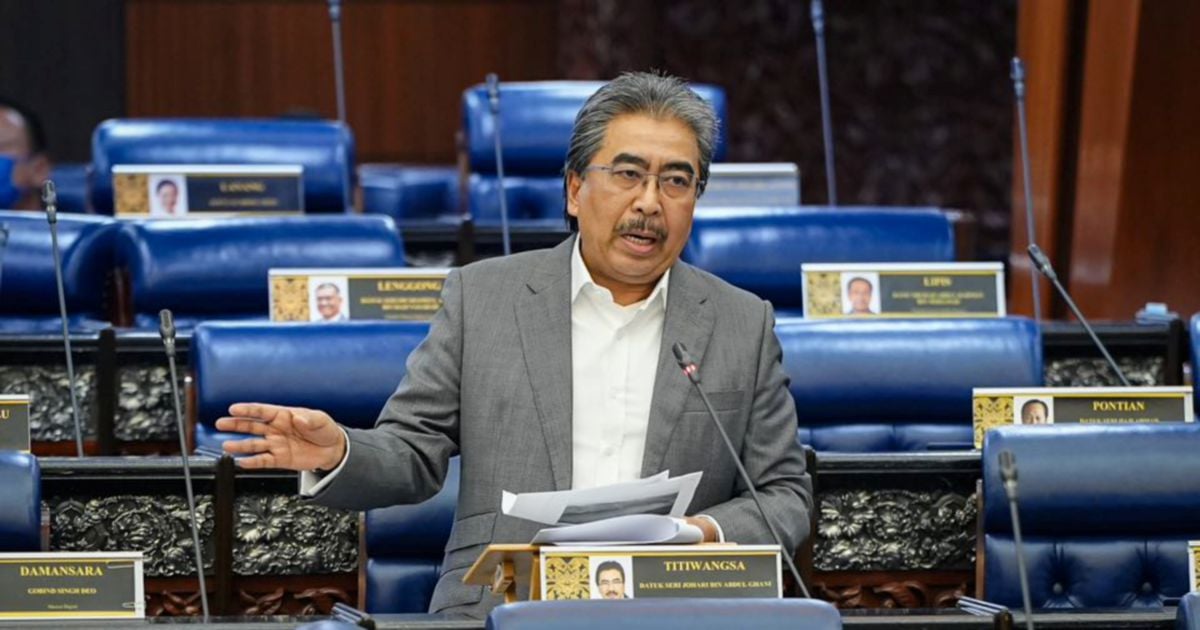KUALA LUMPUR: The impact of market restrictions or challenges in the United States (US) on Malaysia’s palm oil industry is expected to be minimal, Plantation and Commodities Minister Datuk Seri Johari Ghani said.
Malaysia exported a total of 191,231 metric tonnes of palm oil to the US last year, representing only 1.1 per cent of the country’s total palm oil exports for 2024, he said.
“Malaysian palm oil is certified sustainable under the Malaysian Sustainable Palm Oil (MSPO) certification and possesses specific characteristics and functions that are difficult to replace with other oils.
“Therefore, the level of dependence by the United States industry on sustainable palm-based products is high.
“Based on these factors, the direct impact of restrictions or market challenges in the United States on Malaysia’s palm oil industry is expected to be minimal,” Johari said in a written parliamentary reply.
Malaysia is the world’s second-largest producer of palm oil, after neighboring Indonesia.
While Indonesia holds the top position, Malaysia plays a significant role in the global palm oil market, both in production and exports.
Palm oil is an edible oil used in everything from cakes, chocolate, margarine, and frying fats to cosmetics, soap, shampoo, and cleaning products.
India and China are the major importers of Malaysian palm oil. Other significant markets include the European Union and Turkey.
Johari added that about 70 per cent of Malaysia’s palm oil production is led by estates or plantation companies that also export palm oil, making the Malaysian palm oil industry strong and dynamic in facing international market challenges.
At the same time, he said, the government remains committed to providing various forms of support, particularly to smallholders.
This is done through the Replanting Financing Scheme for Smallholder Palm Oil Farmers, as well as special grants such as the supply of products to control Ganoderma basal stem rot disease.
“Such assistance helps mitigate the impact on Malaysian smallholders from changes in international trade policies,” he said.
Johari was responding to Kamal Ashaari (PN–Kuala Krau) on the short- and medium-term action plans drawn up by the government to help the palm oil industry adapt to the more challenging United States market.
He was also asked by Chong Zhemin (PH–Kampar) about efforts to assist rubber and palm oil smallholders in facing the global commodity price decline.
Johari said the ministry remains committed to protecting the welfare of palm oil smallholders through several strategic measures.
These include the RM100 million replanting scheme in collaboration with Agrobank, which combines grants and low-interest loans, as well as a grant allocation of up to RM200,000 for weighing centres under the Sustainable Palm Oil Growers’ Cooperative (KPSM).
Smallholders are also eligible for interest-free financing of up to RM300,000 through the Easy Financing Scheme (SPM) to strengthen their competitiveness.
In addition, RM50 million has been allocated under Budget 2025 to support the implementation of the MSPO certification, covering costs for training, documentation, certification, and protective equipment.
On the rubber sector, Johari said global prices are largely determined by supply and demand, limiting the government’s ability to intervene, as Malaysia contributes only 3.3 per cent of global output.
He said the ministry has introduced several initiatives, including the Consolidation Programme to provide more stable income opportunities, the Rubber Production Incentive (IPG) with a raised activation price of RM3 per kilogram, and the Latex Production Incentive (IPL+) to encourage a shift to higher-yield latex production.
Johari said the ministry has also rolled out the National Rubber Industry Transformation Programme (TARGET), aimed at boosting smallholders’ income by shortening the supply chain through greater participation in the industry’s value chain.
© New Straits Times Press (M) Bhd






